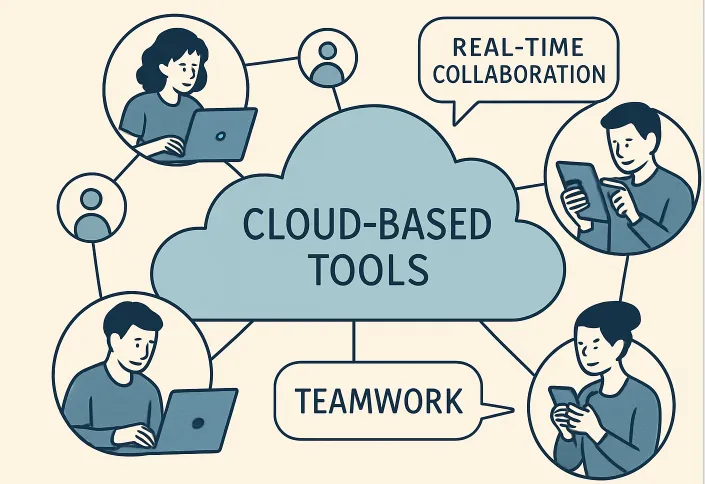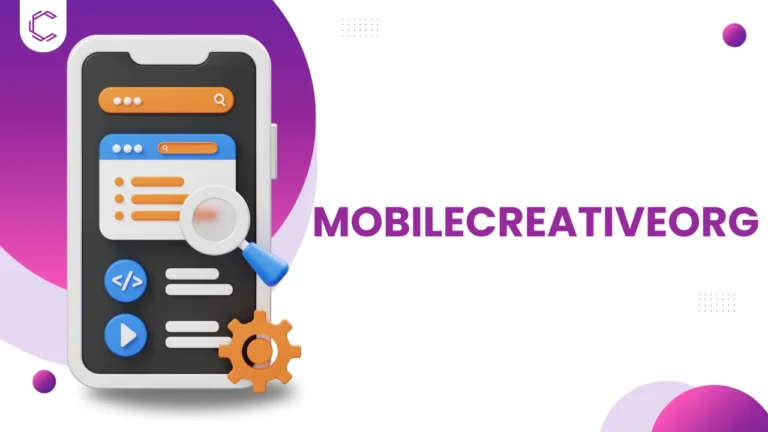How Cloud Apps Are Shaping Process & Productivity
Introduction
The modern business landscape is experiencing a profound transformation driven by the rapid adoption of cloud applications. Cloud-based solutions have become the cornerstone of digital transformation as organizations look for dynamic ways to streamline operations, drive innovation, and foster efficient teamwork. By centralizing tools and data, cloud platforms empower teams to work seamlessly across locations, slashing downtime and enabling rapid response to market changes.
Also Read: How Polarized Lenses Transform Outdoor Experiences
Shifting from traditional systems to cloud apps facilitates more than just file access; it enhances collaboration, automates complex processes, and revolutionizes existing workflows. Whether through real-time communication or smarter analytics, cloud tools have become key to overcoming the challenges of remote work and managing distributed teams. For companies evaluating the best avenue to modernize their workflow and increase productivity, Cloud solutions for Microsoft offer a range of trusted options that consolidate every aspect of business management on a single platform.
Enhancing Collaboration Across Teams
Among the most celebrated benefits of cloud apps is their ability to foster collaboration, regardless of geographical boundaries. Platforms allow employees to work together on documents, spreadsheets, and projects simultaneously, minimizing miscommunication and delays. Instead of emails or outdated file versions, teams now have access to a shared, always-synced environment that accelerates decision-making and project delivery. According to reports by CIO.com, businesses using these collaborative platforms experience improved knowledge sharing and higher team performance, especially as hybrid and remote work become standard practice.
Automating Routine Tasks with AI
The integration of Artificial Intelligence into cloud applications has redefined process automation. AI-powered bots and workflows can handle everything from data entry and invoice processing to responding to customer queries. This dramatically reduces the time and resources required for repetitive tasks, allowing employees to focus on higher-value activities.
Automation isn’t just about speed. It also introduces consistency and reliability into business operations, helping companies meet quality standards and regulatory requirements with less effort. By embracing AI-driven automation through cloud apps, organizations lay the foundation for future innovations such as predictive maintenance, intelligent forecasting, and automated compliance.
Improving Data Analytics and Decision-Making
Today’s cloud applications have analytics engines that process a wealth of business and customer data in real-time. This capability gives organizations actionable insights that inform strategy, operational adjustments, and customer engagement approaches. Industries such as financial services leverage these analytics to pinpoint revenue trends, measure customer behaviors, and rapidly test new business models—all within secure, compliant environments. As reported by Harvard Business Review, businesses with robust, cloud-based data strategies outperform their peers in agility and profitability.
These advancements mean that leadership teams can quickly pivot in response to changing conditions, rather than relying on lagging or incomplete information. Combining scalable storage, vast computing power, and advanced analytics enables smarter, faster decision-making across industries.
Also Read: BKLIS Senior Hearing Aid: Clear Sound and Comfort for Seniors
Facilitating Remote Work and Flexibility
Cloud computing underpins the flexibility that today’s workforce demands. Employees can access business-critical information from anywhere with an internet connection, ensuring continuity regardless of office closures or travel restrictions. This accessibility has redefined work-life balance, enabling organizations to attract and retain skilled talent regardless of geographical limitations.
Moreover, businesses can create more inclusive work environments, accommodating diverse employee needs and schedules. This accessibility supports productivity and opens up new possibilities for collaboration and knowledge sharing across continents.
Enhancing Security and Compliance
Security remains a top concern in digital transformation, where cloud providers have made major investments. Leading cloud services implement advanced encryption, regular security audits, and compliance certifications to protect sensitive business data and maintain regulatory alignment. With ever-evolving threats, cloud apps offer peace of mind through intelligent threat detection and automatic updates, keeping businesses ahead of potential risks.
Companies leveraging these security features reduce the risk of data breaches and legal non-compliance, helping them avoid reputational damage, costly fines, and operational disruptions. This robust security posture gives organizations confidence as they scale their cloud usage and digital operations.
Final Thoughts
The influence of cloud applications on modern business cannot be overstated. Cloud apps are shaping the future of productivity by removing barriers to collaboration, automating routine tasks, providing deep analytical insights, and supporting secure, flexible work arrangements. Forward-thinking organizations prioritizing cloud adoption are positioning themselves to thrive in an era of agility, innovation, and constant change.







